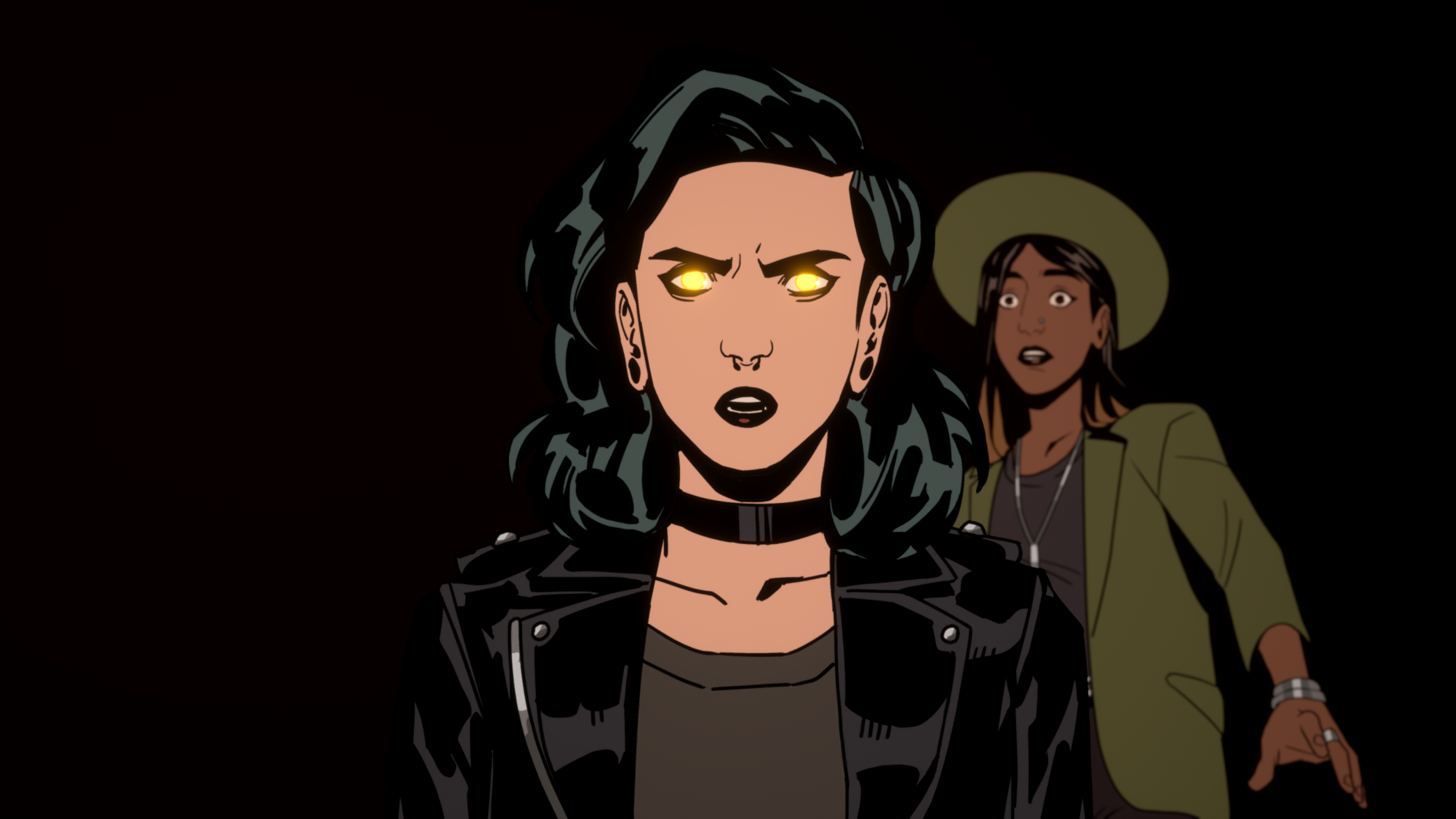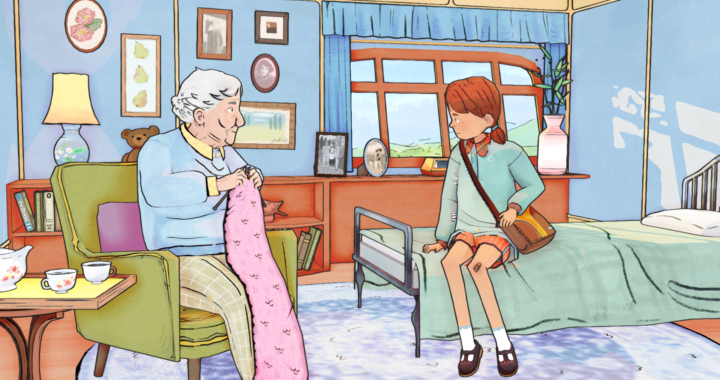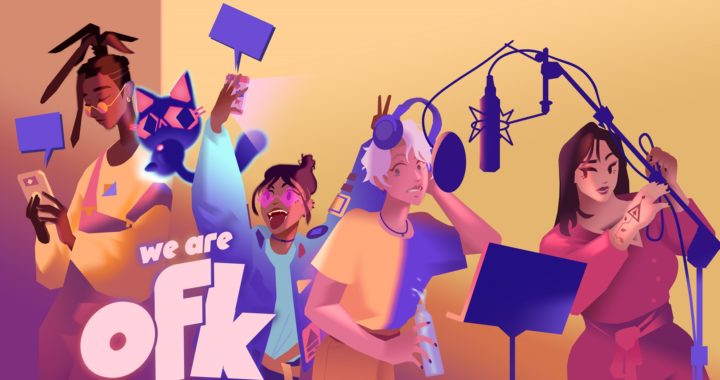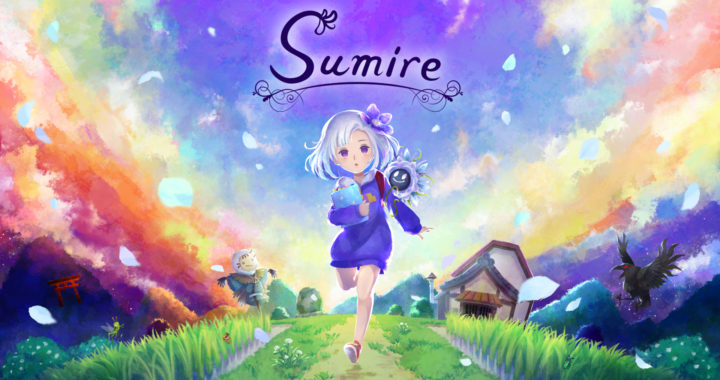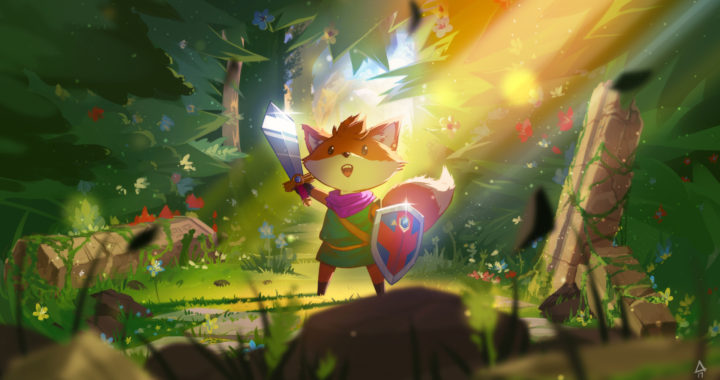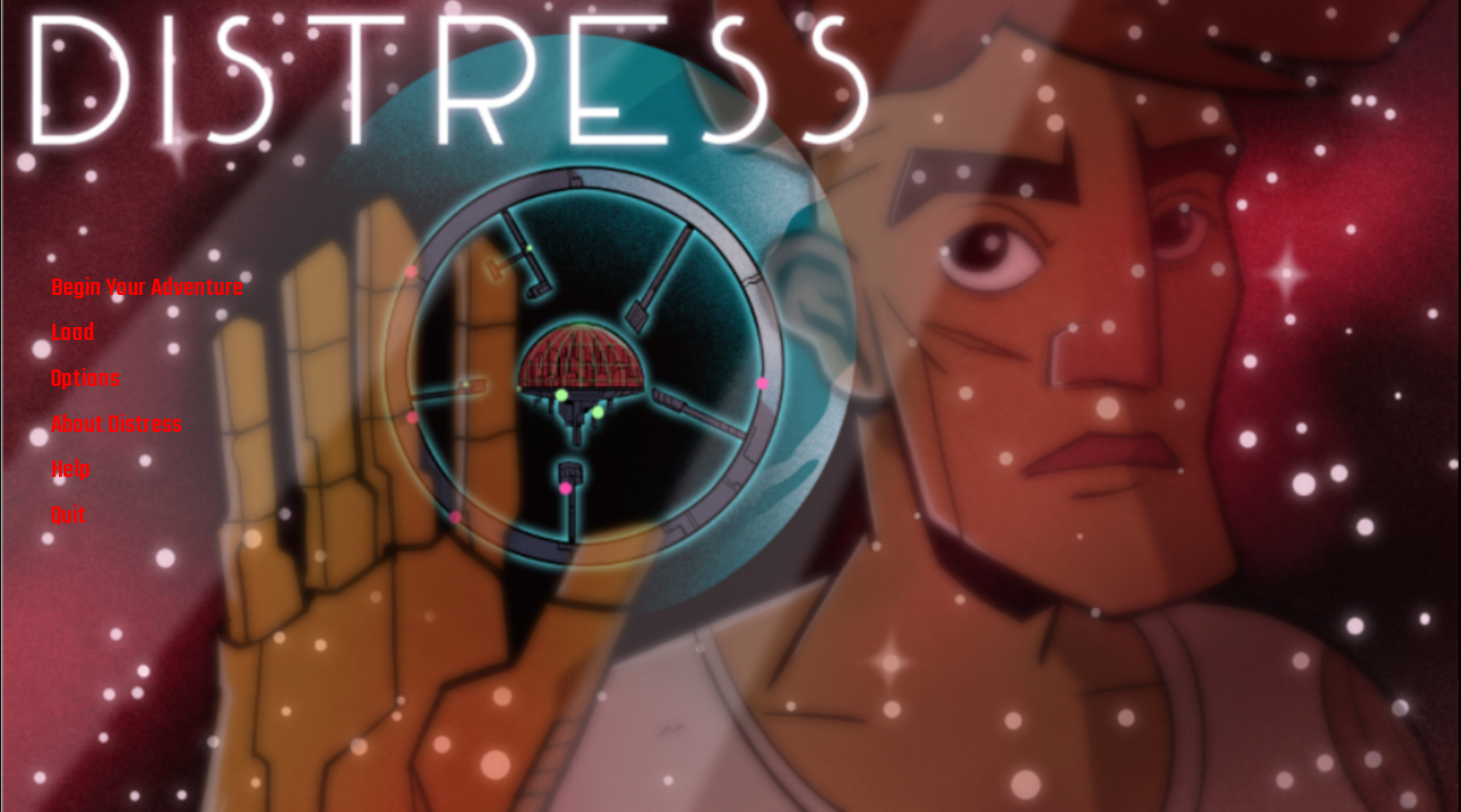
Review: Distress
***Disclaimer: I received code for this game from the developer for review purposes***
“Distress is a crowdfunded sci-fi horror game about survival and making tough decisions” reads the “About Distress” section of the game’s menu as dramatic synth music plays in the background. This pitch is what originally got me interested months ago, and experiencing this title screen made me excited for what was to come. But as I made my way through Distress’ multiple branching pathways, I realized only the second half of that pitch made it into the game.
Written and programmed by Javy Gwaltney, Distress is a visual novel centered on a rag-tag group of mercenary bounty hunters aboard a ship called “The Swiftsure”. Together, you’re on a mission to investigate a distress beacon from a science colony called Nova-8.

Visually, Distress is fantastic. The art from Ian Higginbotham is stunning, combining clean lines and bright colors to give everything an 80’s sci-fi feel. The characters also benefit from this art style, as each has their own distinct look and color scheme. Unfortunately, that’s about the extent of their uniqueness. There isn’t a ton of room to show off their personalities as the game focuses pretty heavily on the events of the main story, leaving them mostly playing stereotypes of what a crack team would look like (i.e. The Big Guy Who Shoots First and Asks Questions Later, and The Nerd Who Makes Useful Gizmos), though I did appreciate the explicit mentions of queerness amongst crew members and side characters. There are some scenes of down time where crew members will talk and interact, but they tend to feel a bit forced and unwieldy.
Erandi Huipe’s synth soundtrack is good on its own, but tends to be mismatched with situations. A scene that feels like it should be extremely tense will have music that elicits serenity or even upbeat feelings. These mismatched tones also take away from any kind of horrific atmosphere the game is trying to create. Even when the music does become more intense and dire-sounding, it never really captures an essence of anxiety or fear. We all know that the best horror movies and games capitalize on music and sound design to build tension and give viewers/players a feeling of increasing dread. Distress’ music never quite gets there, leaving a void where spookiness might have been.
That’s my biggest complaint about Distress overall. Despite being pitched as a horror game by its creators, it just never really feels like one. While chasing down as many of the possible choices and endings as I could, I never found myself feeling scared, or even slightly uncomfortable. At most, I felt anxious about what my choices would result in, but that’s no different than any Telltale game I’ve played. There are portions that deal with gore and what could possibly be considered body horror, but they’re fairly tame and Higginbotham’s cartoon-y style takes some of the punch out of them. It could be that I’ve become desensitized to gore and death after all these years of consuming horror films and games in general, but I just wasn’t scared playing this game. Mostly, I found myself impressed by its willingness to commit to hard choices.

My first time through, I wanted to see just how badly things could go if I made the choices that were pretty obviously coded as “bad”. Fighting my instinct to always try to be the hero, I committed again and again until it finally came down to the climactic final choice. The game committed too. Without getting into spoilers, I was genuinely shocked with how hard Distress leaned into the reality of making that choice. Let’s just say that death isn’t the worst thing that can happen to Demetria and her crew as they explore Nova-8. The outcome was terrible, hard to watch, and true to the situation. I could see how Demetria could have gotten to that point, and how it would make sense if you played her as someone married to the idea of paying any price to see something through. As cliche as it sounds when talking about a game, I was also really impressed by how much it felt as though your choices factored into how the game played out. Something as simple as deciding whether or not to walk down a street gave me access to at least five different endings. Few games that have branching narratives have made me feel like there was real diversity and consequence to my decisions outside maybe three or four main outcomes, but Distress managed to keep me in genuine suspense to see what would happen if I chose a different path.
That’s where Distress’ strength really lies, and what makes it worth playing. The story as a whole is relatively straightforward, and while it flirts with difficult subjects like fascism, slavery, and the impact of war, it doesn’t dive all that deep into them. I wish some of these subjects had been explored more in depth within the fiction of this world, but the general story is still enjoyable, and I couldn’t help but be a bit awed by how tightly Gwaltney was able to tell this story from a multitude of angles. I never felt that there were plot holes, or that parts were repetitive, even when I had to go through sections again. Big choices obviously mattered and were apparent, but others that seemed innocuous sometimes had dire consequences I never could have foreseen. No matter which path I took, I had the same basic outline of a story, but there were so many interchangeable pieces that all managed to fit together cohesively, regardless of how they were assembled to give each telling a unique feel.
You can buy Distress for $5 over on itch.io
All images are screenshots taken by the author
